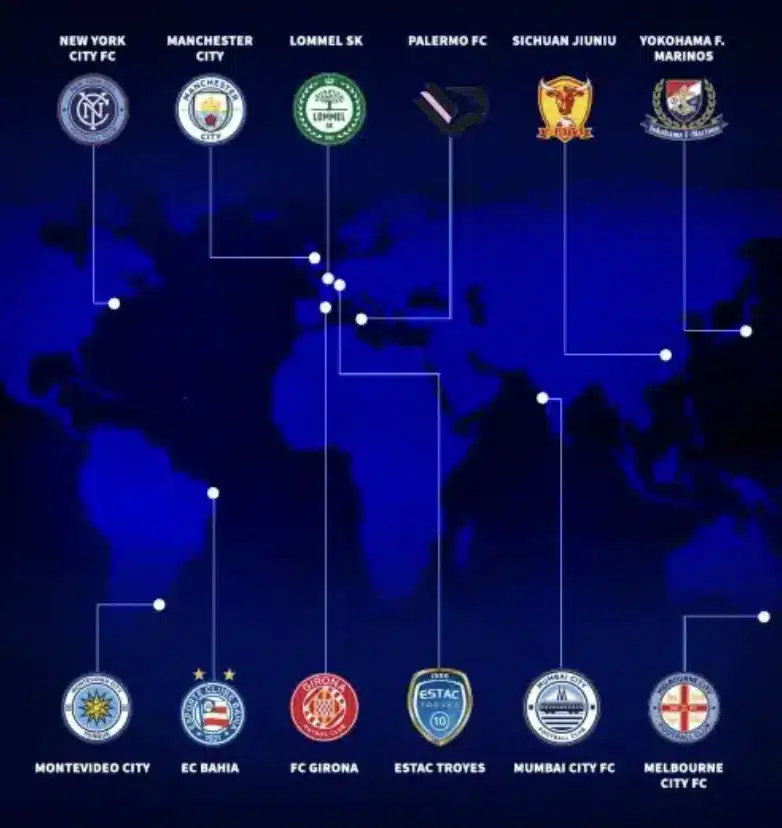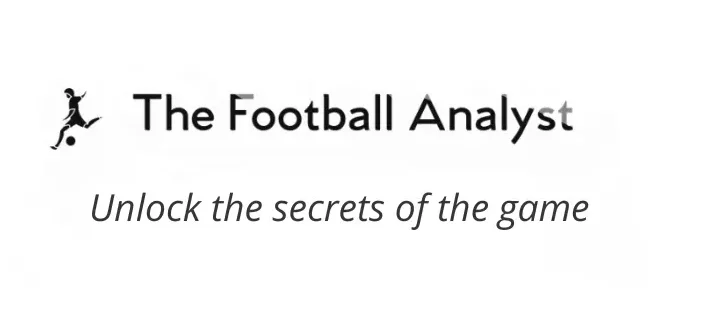In modern football, few organizations have reshaped the landscape like City Football Group (CFG). More than just the owners of Manchester City, CFG has built a vast footballing empire that spans six continents, 13 fully owned clubs, and a growing web of strategic partnerships. With a unified playing philosophy, centralized scouting, and tailored development pathways, the group represents one of the most advanced, future-focused models in world football.
This isn’t just a case of financial firepower — it’s a data-driven, globally integrated system built to identify talent early, develop players effectively, and win both on the pitch and in the transfer market.
A Football Group Built to Scale
Founded in 2013 and backed by Abu Dhabi’s Sheikh Mansour bin Zayed Al Nahyan, City Football Group was created to expand the sporting and commercial potential of Manchester City through a global multi-club strategy. What began as a footballing experiment is now a blueprint for sustainable success at scale.
CFG currently owns or holds controlling stakes in 13 clubs:
Europe
- 🇬🇧 Manchester City (England)
- 🇪🇸 Girona FC (Spain)
- 🇮🇹 Palermo FC (Italy)
- 🇫🇷 Troyes AC (France)
- 🇧🇪 Lommel SK (Belgium)
- 🇫🇷 Vannes OC (partner club, France)
North America (CONCACAF)
- 🇺🇸 New York City FC (USA)
- 🇺🇸 New York City FC II (USA)
South America (CONMEBOL)
- 🇺🇾 Montevideo City Torque (Uruguay)
- 🇧🇷 Esporte Clube Bahia (Brazil)
- 🇧🇴 Club Bolívar (partner club, Bolivia)
Asia and Oceania (AFC)
- 🇮🇳 Mumbai City FC (India)
- 🇦🇺 Melbourne City FC (Australia)
- 🇦🇺 Melbourne City Women (Australia)
- 🇯🇵 Yokohama F. Marinos (partner club, Japan)
- 🇨🇳 Shenzhen Peng City (China)
- 🇸🇬 Geylang International (partner club, Singapore)

Each of these clubs serves a strategic purpose: from talent sourcing and player development to market expansion and commercial growth. Together, they form a footballing ecosystem unlike anything else in the game.
A Unified Footballing Identity
At the heart of CFG’s success is a clearly defined playing identity. Across the network, clubs are encouraged to adopt a style rooted in:
- Proactive, possession-based football
- Structured positional play
- High pressing and quick transitions
- Tactical flexibility with a shared philosophy
This identity is most visible at Manchester City under Pep Guardiola, but it filters down through the network in principle rather than prescription. Clubs are not forced into identical systems — they adapt to local contexts, league demands, and player profiles — but core tactical ideas remain consistent.
This gives CFG a competitive advantage when players or coaches move between clubs, reducing adaptation time and ensuring a seamless tactical transition.
How City Football Group Scouts Talent
CFG’s global presence gives it unmatched access to talent pipelines across continents, but what separates it is how it scouts.
Centralized Intelligence, Local Execution
Each club has its own recruitment department, but they operate within a broader CFG-wide scouting and intelligence network. At the center is a data-rich scouting hub in Manchester, which:
- Tracks player performance across all CFG and partner clubs
- Integrates traditional scouting with data analytics and video scouting
- Coordinates global scouting priorities
This allows CFG to identify players early, track them longitudinally, and assess their suitability for the group’s playing style and development path.
Key Scouting Criteria
While individual clubs have their own needs, the overall scouting model emphasizes:
- Technical quality – Players must handle pressure and operate in tight spaces.
- Tactical intelligence – Understanding of positioning, structure, and spatial awareness.
- Adaptability and mentality – The ability to fit into CFG’s philosophy and move across continents.
- Development potential – Especially for smaller clubs, players are signed to grow, not just perform.
This holistic approach gives CFG a major edge in competitive markets where top clubs fight over ready-made stars — CFG focuses on what a player can become in 2–3 years, not just who they are now.
Internal Pathways and Strategic Player Movement
Perhaps CFG’s greatest strength is its ability to move players through a controlled development system.
A 19-year-old signed by Montevideo City Torque might move to Lommel for a first taste of European football, then to Girona for top-flight experience, before making the jump to Manchester City or being sold at a profit. The group can tailor each player’s journey based on individual needs, positional demand, and league context.
This model offers:
- More playing time for young players
- Better visa and work permit navigation
- Smarter resale strategies
- Reduced loan dependency
By controlling the environments players grow in, CFG lowers risk and increases development efficiency.
The Role of Data and Technology
CFG is also one of the sport’s most data-driven organizations. From scouting to performance to medical load management, data is deeply embedded into every level of decision-making.
- Recruitment: Advanced metrics and predictive modeling support traditional scouting reports.
- Tactical analysis: Video and tracking data inform training and match prep.
- Medical and performance: Injury risk, load monitoring, and recovery are centrally tracked.
The group even leverages proprietary tools and internal databases to keep a global overview of talent, enabling smarter squad planning across the network.
Why the Model Works
City Football Group’s model works because it is:
- Cohesive: The group aligns its football, business, and development strategies.
- Scalable: The network can grow without losing quality control.
- Integrated: Data, scouting, coaching, and player movement are part of the same system.
- Localized: Each club adapts to its environment, with support from the global network.
For CFG, this isn’t just about winning trophies — it’s about building sustainable, long-term value in football. From commercial partnerships to youth academies to player trading, every part of the machine serves the same purpose.
Final Thoughts
City Football Group isn’t just a football conglomerate — it’s a modern footballing infrastructure, purpose-built for global success. In an era where clubs face increasing pressure to win, develop, and generate revenue, CFG offers a model that does all three — efficiently, intelligently, and at scale.
For scouts, analysts, and executives alike, CFG represents not just a new kind of football power, but a glimpse into the future of the sport.
